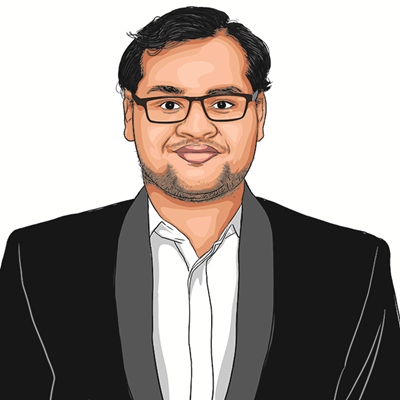Opinion The doctors you won’t hear about on Doctor’s Day — because some specialisations are meant for ‘ladies’
Branches with uncertain futures, those considered unconventional or ‘soft’, are routinely dismissed as ‘ladies’ branches. Fixed work hours, no night shifts, a steady, though not stellar, income — ideal for women balancing work and home
 Confronting my queerness and my masculinity together was an uphill battle.
Confronting my queerness and my masculinity together was an uphill battle. Two months into my master’s in public health, a senior told me, “It’s okay for me to do public health because I’m a woman. But for a man, not so much.”
Her logic was simple. First, the money. You don’t make heaps of it here, certainly not what’s expected from a doctor who’s slogged through a decade of sleeplessness, servitude, and scolding. Second, you’re no longer a doctor.
If you dissect that statement, you begin to uncover the aspirations that budding doctors quietly hold dear. Medicine is supposed to turn them into professionals who stent hearts or excise tumours — roles that carry not just clinical weight but also immense financial and social capital.
Branches like Microbiology, Pathology, Biochemistry — those that support patient care from the sidelines — are usually considered the stepchildren of medicine. Not many MBBS graduates choose them willingly. Most land there after repeated attempts at getting into more “clinical” fields. It’s a slow, painful process of elimination.
What intrigues me even more is how much these specialisations are steeped in gender. The idea of being a “man” or a “woman” isn’t just about identity. It’s reinforced quietly but firmly by the branch you pursue. Recently, when my brother chose to opt for Biotechnology, a counsellor casually remarked, “Only girls go for that.” That one barb was enough to rattle my father.
Branches with uncertain futures, those considered unconventional or “soft,” are routinely dismissed as “ladies’ branches”. Fixed work hours, no night shifts, a steady, though not stellar, income — ideal for women balancing work and home. Financial independence giving the woman a slightly higher share in money matters at home is often framed as empowerment.
The image of a man is tough, sturdy, stable and always in control. One who protects and provides. Multiple studies have shown that breadwinning sits at the heart of hegemonic masculinity; one study from Nigeria found that being a provider was a near-universal marker of manhood.
In medicine, this idea takes on dangerous proportions. The scalpel, the bone saw are seen not only as tools of healing but also of power. There’s a raw, almost primal machismo in cutting open a body to salvage it. Before Semmelweis and Lister introduced handwashing and disinfection, surgeons wore blood-stained gowns as a medal of pride and masculinity.
Perhaps that’s why we compare doctors to gods. And, of course, both are usually thought of as males. What we often miss in the god-doctor comparison is the role of money. Our gods are rich men. As capitalism advances, a similar expectation is heaped on doctors — their worth is being determined less by care and more by cash. Max Weber called this rationalised world an “iron cage,” where money becomes the ultimate meaning.
In a matter of a few years, I’ve witnessed a growing aversion to intellectual rigour and curiosity among doctors. Knowledge that serves immediate practical concerns is prioritised, while deeper inquiry is dismissed as indulgent and useless. Securing a postgraduate seat is no longer thought to be a gateway to learning but as a means to an end: Better job prospects, a stable life, and, in some cases, simply meeting the minimum requirement for a respectable match.
All of this explains the strange invisibility of public health doctors. We’re not easing a patient’s immediate pain. And barring a lucky few, we don’t earn much. The TB programme cures lakhs of people of the deadly disease — and protects twice the amount from the deadly infection — but remains invisible. A new vaccine, a new intervention safeguards the lives of people in poor, tribal, hard-to-reach areas, but everybody turns a blind eye. But then one can’t blame any individual when we live in a structure defined by capitalism which privileges callousness over care, money over human life.
When I chose this branch on purpose, I was called sarphira. Mad. Confronting my queerness and my masculinity together was an uphill battle. Even writing in Hindi, not English, made me a second-class citizen in the world of writing. But when you stand at the intersection of so many margins, how do you begin to reconcile with your identity?
You accept them. You wear them. You begin to feel proud that whatever you become, you won’t just be another run-of-the-mill person in the queue.
Gupta is a doctor and writer






